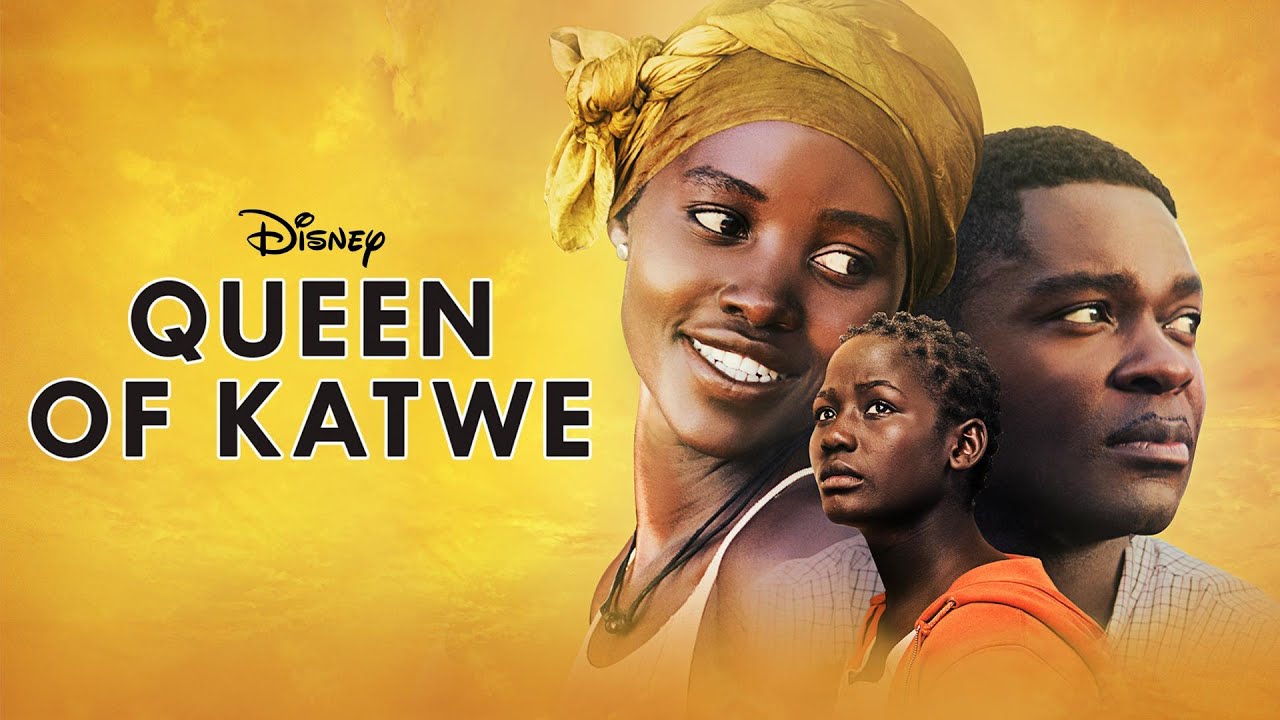Features
Mfonobong Inyang: Powerful Life Lessons about Children from “Queen of Katwe”

One of my favourite biopics on children definitely has to be Queen of Katwe. Directed by Mira Nair, the Disney production stars our very own David Oyelowo, screen goddess Lupita Nyong’o and teenage sensation Madina Nalwanga who bodied their respective roles. Set in the slums of Kampala, Uganda, the movie is based on a true life story of Phiona Mutesi who was born into the depths of poverty and raised by a single mother but whose life and that of her family changes forever after she is introduced to chess.
By the way, I strongly recommend chess for children, not so much for sporting purposes but more importantly because it boosts their cognitive awareness and improves their ability to think critically – just like ChessInSlums is doing. The movie touched several cords because I can relate on a personal level. It is the story of our lives; where we were born isn’t always where we belong. It is the pursuit of a better future than the one our present circumstances suggest. It is the possession of a skill that is awkward for where we are but apposite for where we’re going.
Development is really about one generation putting in the work so that those coming behind can have one less thing to worry about; that is why for those of us who were not born into a rich family must necessarily ensure that a rich family comes from us. First, I watched for purely entertainment purposes, then I watched again to extrapolate very important insights I consider most didactic.
“I know a hyena when I see one”
The boyfriend of Night, Phiona’s sister pulled up in his ‘boda boda’ to pick her up. Her mother did not hide her disapproval. Not only did she believe he was taking advantage of her eldest daughter, their romance left Night little time to sell maize for the family. An Africa proverbs says, “when the eagle swoops down to catch one of the hen’s chicks, the mother hen makes a lot of noise – not so much because she can stop the inevitable but so that everyone around can bear witness that she was not quiet during the attack.” A mother’s instinct kicked in here, and despite whatever happened later, she got an E for Effort.
“This is a place for fighters”
Phiona followed her brother to a local chess club, The Pioneers – founded by local chess coach, Robert Katende. She was bullied for being unkempt and she fought back. The coach didn’t talk her down, instead he used that as a teaching moment – the fighting spirit is what makes people champions.
“In chess, the small one can become the big one; that’s why I like it”
Resident champion Gloria, portrayed by the late Nikita Pearl Waligwa took Phiona on her first chess lesson. Using the concept of promoting, she told Phiona that with thoughtful moves, an ordinary pawn can become the queen. This is the lesson children should be taught, the power of their potential – to be whatever they choose to be.
“Use your mind, follow your plans and you will all find safe squares”
Using their everyday anecdotes, coach Katende taught the children the benefits of planning. Just like they navigate the challenges in the community, they had to do the same until they found ‘safe squares’ – away from paedophiles, child traffickers, ritualists and abusers.
“She must have more certainty than I did as a child”
Here, Robert Katende thought of his inability to adequately provide for his family especially now that he had become the father of a beautiful girl. He knows his child deserves better. I wrote last year about people who bring children into the world without a plan or resources to take care of them. We must always break the cycle of dysfunction.
“Allow your children to come with us”
An apprehensive Harriet had earlier withdrawn her children from The Pioneers based on hearsay. Her fears were not unfounded, the last thing she wanted was losing her children to charlatans. Coach Katende then made a case for their brilliance and the possibility of a better future. This is one of the challenges of parents who raise children that are not like them. There is the temptation to ‘protect’ children and instead of mothering them, they end up smothering them. Sometimes we just have to let the children go and let them grow too. Read the Moses Model.
“We are drawn together by our love for this game of strategy which strengthens our minds”
Most parents see extra-curricular activities as an avenue for children to play their heads off. In reality, children learn better in a fun environment or activity. All work and no play makes Chukwueze and Abimbola dull children. Especially for children with dyslexia, the Montessori approach may not cut it, what may do the magic could be the multi-sensory approach.
“You’re running for your lives”
As the Pioneers arrived at a bougie school, the venue of a chess tournament, they soon developed cold feet. Overwhelmed by a sense of inadequacy, they became home-sick. Coach Katende stepped in and fired up their spirits with a simple story of the dog and cat. The dog said it couldn’t catch the cat because whilst it was merely running after breakfast, the cat was running for its life. Alive with hope again, the Katwe Cool Cats brimmed with confidence. Always motivate kids by telling them what’s at stake and why mediocrity is a luxury that they can’t afford.
“One of us has to play this boy. Why not you?”
Children are easily influenced by their peers, especially those from humble backgrounds – they have the tendency of feeling unworthy. It’s your job as a parent to talk them up; tell them the world is their oyster.
“With books, it’s like the teacher lives in there and you can visit whenever you wish”
The cliché is valid; readers are truly leaders. From young, children should be groomed to love books. Not always reading for academic purposes but to broaden their perspectives and expand their worldview. A child that won’t read is no different from one that can’t read.
“Don’t be quick to tip your king!”
Teach children fortitude, that it’s completely okay not to get it right the first time, what they must never do is quit because winners don’t quit and quitters don’t win. Nudge then to try one more time at something they see as impossible, teach them to stay at it until it comes good.
“Sometimes the place you’re used to is not where you belong”
Teach your children how to dream, take them sight-seeing to exotic places. I learnt many years ago from Energy Consultant, Dolapo Oni that “success is first an image.” Children process pictures faster than words. If you get the right images into their heads, they will eventually live it out. Like the inscription on their bus reads: “challenges are not curses.”
“You have shown my children a paradise, now they feel out of place”
Phiona’s mother bemoaned her new bitter-sweet experience. On the one hand, Phiona is doing well in chess but on the other hand, she did not want to return to squalor – she waned the good life. It requires skill from parents to manage kids in transition – children who are no longer who they used to be at the same time not yet who they want to be. Dealing with the messy middle is key, sometimes reach out for help. Coach Katende admitted too that Phiona had the “talent of a prodigy” but he didn’t have the experience to train her. Again the Moses Model: most times, a child’s mentor for a next level isn’t always the parents. She could teach Phiona how to sell maize but someone else had to teach her how to play chess.
I wrote this for traditional parents who are raising transitional children. Chances are that your children will not take your own route – don’t fight them, buy more paraffin for them instead and learn more about their calling. You may be a priest (safe, normal) but these little ones may have been called to be prophets (sent, nomadic). You don’t want to allow your fears make you inadvertently clip off their wings and then wonder why they can’t fly as adults.
Who’s your number one spice?



















